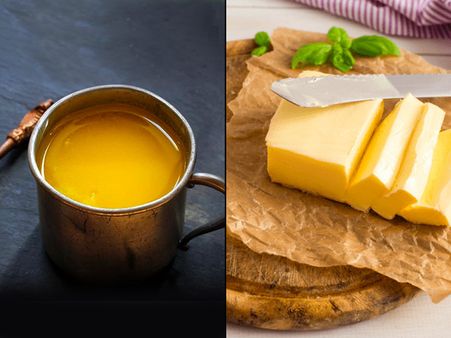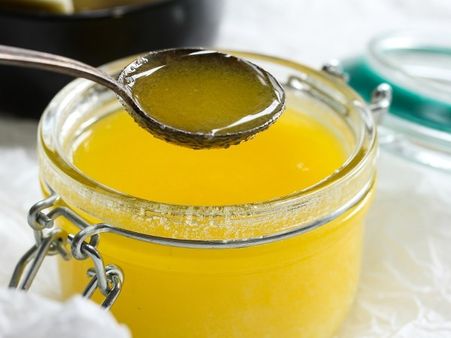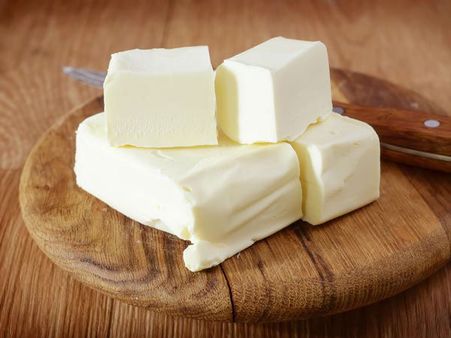Just In
- 9 hrs ago

- 10 hrs ago

- 13 hrs ago

- 13 hrs ago

Don't Miss
- Movies
 Arti Singh Wedding: Govinda Ends Feud With Krushna Abhishek, Reunites After 6 Years. Wife Sunita Ahuja Skips
Arti Singh Wedding: Govinda Ends Feud With Krushna Abhishek, Reunites After 6 Years. Wife Sunita Ahuja Skips - Finance
 2:15 Bonus: Tata Group's Penny Stock Below Rs 90, Gives 2,821% Returns In 5 Years: Announces Q4 Report Card
2:15 Bonus: Tata Group's Penny Stock Below Rs 90, Gives 2,821% Returns In 5 Years: Announces Q4 Report Card - Sports
 IPL Points Table 2024 After Today's Match, SRH vs RCB On April 25: Check Indian Super League Standings And Results
IPL Points Table 2024 After Today's Match, SRH vs RCB On April 25: Check Indian Super League Standings And Results - News
 MEA Dismisses US Human Rights Report On Manipur As 'Biased And Misinformed'
MEA Dismisses US Human Rights Report On Manipur As 'Biased And Misinformed' - Automobiles
 Royal Enfield Unveils Revolutionary Rentals & Tours Service: Check Out All Details Here
Royal Enfield Unveils Revolutionary Rentals & Tours Service: Check Out All Details Here - Technology
 Elon Musk’s X Is Launching a TV App Similar to YouTube for Watching Videos
Elon Musk’s X Is Launching a TV App Similar to YouTube for Watching Videos - Education
 AICTE introduces career portal for 3 million students, offering fully-sponsored trip to Silicon Valley
AICTE introduces career portal for 3 million students, offering fully-sponsored trip to Silicon Valley - Travel
 Escape to Kalimpong, Gangtok, and Darjeeling with IRCTC's Tour Package; Check Itinerary
Escape to Kalimpong, Gangtok, and Darjeeling with IRCTC's Tour Package; Check Itinerary
Butter Vs Ghee: Which Is Better For Your Health?
Both butter and ghee have been used in kitchens for centuries. Ghee is a commonly used product in Indian and Middle Eastern cuisine, religious rituals, and traditional medicines. On the other hand, butter is also considered a reputed dairy product prepared by churning the cream until its fats break down and solidify to form butter.

Ghee and butter differ in many ways like taste, processing and texture. Many people consider ghee as a superfood as it contains good fats which are healthy for guts and skin while butter is considered healthier because of its low calories content. Let's scroll down to know more about both of them.

Difference Between Ghee And Butter
Several aspects differentiate ghee and butter. Here are some of the factors which will help you understand the difference between the two and choose the best one for your health.
1. Nutritional Value
100 g of ghee contains 0.24 g water and 876 kcal energy. It also contains 0.28 g protein, 4 mg calcium, 3 mg phosphorus, 22.3 mg choline, 840 mcg vitamin A, 824 mcg retinol (vitamin A1), 2.8 mg vitamin E, 8.6 mcg vitamin K, 193 mcg carotene (beta) along with vitamin B12, vitamin B6 and vitamin B3. The important constituent in ghee is a fatty acid that helps improve the body's metabolism. [1]
On the other hand, 100 g of salted butter contains 16.17 g water and 717 kcal energy along with 0.85 g protein, 24 mg calcium, 24 mg phosphorus, 684 mcg vitamin A, 671 mcg retinol, 158 mcg carotene (beta) along with some amount of fatty acids.
2. Processing
Both ghee and butter are derived from cow's milk. Ghee can easily be prepared at home from malai (clotted cream obtained after boiling the milk). Stir the malai for long in low temperature so as to separate the solid part (butterfat) and liquid part (buttermilk). One can also make ghee from unsalted butter available in the market. Melt the butter at low temperature and take off the solid part from the surface. Allow it to cook until the liquid is separated and has come up while the milk solids have gathered at the bottom. Wait until the milk solids turn brown as they give ghee its colour and flavour.
Butter is prepared by first converting the cow's milk into cream by the process called centrifugation in which it is rotated at high speed inside the machine. The cream that is produced undergoes the process of churning in which it is beaten and shaken to make it thick. The liquid portion (buttermilk) of the cream is separated while the solid part is the butter. The solid part is actually the broken fats particles which have joined together to make a thick consistency, just as the butter needs.
3. Allergic reactions
Ghee does not contain any milk solid as it is completely removed during the preparation. With no milk protein, ghee is considered best for people who have lactose intolerance. In the case of butter, dairy protein (casein) is present which can trigger an allergic reaction to people with lactose intolerance and cause symptoms like rashes, itching and asthmatic symptoms.
4. Taste
As ghee and butter are prepared in different ways, their taste differs from one another. Ghee slightly tastes sweeter, roasted and has a nutty flavour. The high smoke point of ghee, 250-degree Celcius makes it suitable for frying foods. On the other hand, the smoke point of butter is 150-degree Celcius which is why it is a great choice for sauteing and quick-cooking meats and vegetables. Butter tastes slightly sour, acidic tangy and cheesy. Mostly it does not have its own flavour but adds to the flavour of the food in which it is used.

Health Benefits Of Ghee
Ghee has several health benefits. Common health benefits of ghee are as follows:
1. Prevents cancer
Ghee contains vitamin E, one of the most powerful antioxidants that help to reduce the oxidative stress in the body. Another reason is that at high temperature, many oils tend to break down and release carcinogenic free radicals. As ghee has a high smoking point, it cannot be easily broken into free radicals and hence, protects us from the risk of cancer.
2. Low in lactose
Ghee is prepared in such a way that the milk part gets separated from it which is higher in sugar compound called lactose. This makes it qualified for people who have lactose intolerance. A study shows that ghee has almost negligible levels of lactose. [2]
3. Good for heart
According to the American Heart Association, limited consumption of ghee (less than 7%) can help to prevent cardiovascular diseases. The study also says that up to 10% of dietary ghee helps in lowering the cholesterol and lipoprotein levels. [3]

Health Benefits Of Butter
1. Improves gastrointestinal function
Butter contains a special type of fatty acids called glycosphingolipids that help protect the gastrointestinal system against bacterial infections and other related disorders. [4]
2. Improves thyroid health
Many people face thyroid-related problems due to deficiency of vitamin A in the body. Butter is rich in vitamin A that helps in the proper functioning and secretion of hormones by the thyroid gland. [5]
3. Prevent arthritis
Butter contains a special compound called Wulzen Factor, also known as an anti-stiffness factor. It reverses the calcification symptoms and protects bones against arthritis, cataracts and pineal gland calcification. [6]

Which One To Choose?
The nutritional profile of both ghee and butter are almost the same. However, ghee is good for health from some aspect while butter is the best from other aspects. They both are the kings in their own ways with very little downsides. Choosing ghee over butter or vice versa totally depends on an individual's choice and preference.
-
 healthKriti Sanon Swears By This Superfood For A Fit Tummy
healthKriti Sanon Swears By This Superfood For A Fit Tummy -
 healthUnveiling the Power of Turmeric Ghee: An Ancient Ayurvedic Secret!
healthUnveiling the Power of Turmeric Ghee: An Ancient Ayurvedic Secret! -
 healthGhee: How Much Can You Eat A Day? Who Should Avoid It?
healthGhee: How Much Can You Eat A Day? Who Should Avoid It? -
 faith mysticismGhadiya Ghat Mataji Mandir: Mysterious Bhavani Temple Where Diyas Are Lit Using Water And Not Ghee
faith mysticismGhadiya Ghat Mataji Mandir: Mysterious Bhavani Temple Where Diyas Are Lit Using Water And Not Ghee -
 recipesHow To Prepare Healthy Ghee Idli: Shahid Kapoor’s Favourite South Indian Dish
recipesHow To Prepare Healthy Ghee Idli: Shahid Kapoor’s Favourite South Indian Dish -
 babyBenefits Of Ghee For Babies: Good For Digestion, Brain Development, Immunity And Many More
babyBenefits Of Ghee For Babies: Good For Digestion, Brain Development, Immunity And Many More -
 recipesPanchamrut Recipe: How To Prepare The Auspicious Sweet Prasad Dish At Home
recipesPanchamrut Recipe: How To Prepare The Auspicious Sweet Prasad Dish At Home -
 prenatalIs Ghee Helpful During Pregnancy For Normal Delivery?
prenatalIs Ghee Helpful During Pregnancy For Normal Delivery? -
 disorders cure15 Indian Home Remedies To Cure Snoring
disorders cure15 Indian Home Remedies To Cure Snoring -
 wellness13 Health Benefits Of Ghee You Didn’t Know
wellness13 Health Benefits Of Ghee You Didn’t Know -
 diet fitnessGhee Can Actually Help You Lose Weight! Find Out How, Today!
diet fitnessGhee Can Actually Help You Lose Weight! Find Out How, Today! -
 recipesMysore Pak Recipe: How To Prepare South Indian Mysore Pak At Home
recipesMysore Pak Recipe: How To Prepare South Indian Mysore Pak At Home


 Click it and Unblock the Notifications
Click it and Unblock the Notifications



